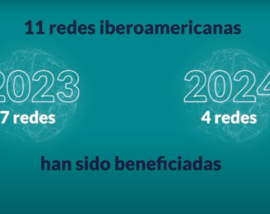Organization: Panagora Group
Country: Dominican Republic
Closing date: 25 Oct 2017
Panagora Group LLC is seeking a Team Leader and Team Members for a Mid-term Evaluation of the USAID/Dominican Republic programming in the field of justice sector reform, comprised of separate activities aimed at strengthening the Attorney General’s Office, the National Police, Community Justice houses, and civil society oversight and dialogue on justice sector reform. The evaluation will take place between January and February, 2018, and will require up to 45 days of effort during that period, including three to four weeks of field work in the Dominican Republic.
Team Leader:
· A graduate degree (LLD, PhD, MA, MSC or similar) in a related field, such as Law, Political Science, Criminology, Sociology or similar.
· At least 10 years of professional experience in designing, managing or evaluating international development programs in the fields of rule of law, justice sector reform, and policing.
· Significant experience as Team Leader of evaluations of donor funded international development programs, especially USAID projects and activities
· Experience evaluating rule of law and/or justice sector reform programs
· Practical skills in the use of mixed methods for evaluations
· Proven experience in managing evaluation teams and analytical and report drafting skills
· Fluent English and Spanish
Team Member:
· A graduate degree (PhD, MA, MSC or similar) in a related field, such as Law, Political Science, Criminology, Sociology or similar.
· At least 5 years of professional experience in designing, managing or evaluating international development programs.
· Experience as Team Member of evaluations of donor funded international development programs, especially USAID projects and activities
· Practical skills in the use of mixed methods for evaluations
· Fluent English and Spanish
How to apply:
To apply, please submit a CV and cover letter to connect@panagoragroup.net with the full position title in the subject line. No telephone inquiries please. Finalists will be contacted.
Panagora is an equal opportunity employer and does not discriminate in its selection and employment practices.


